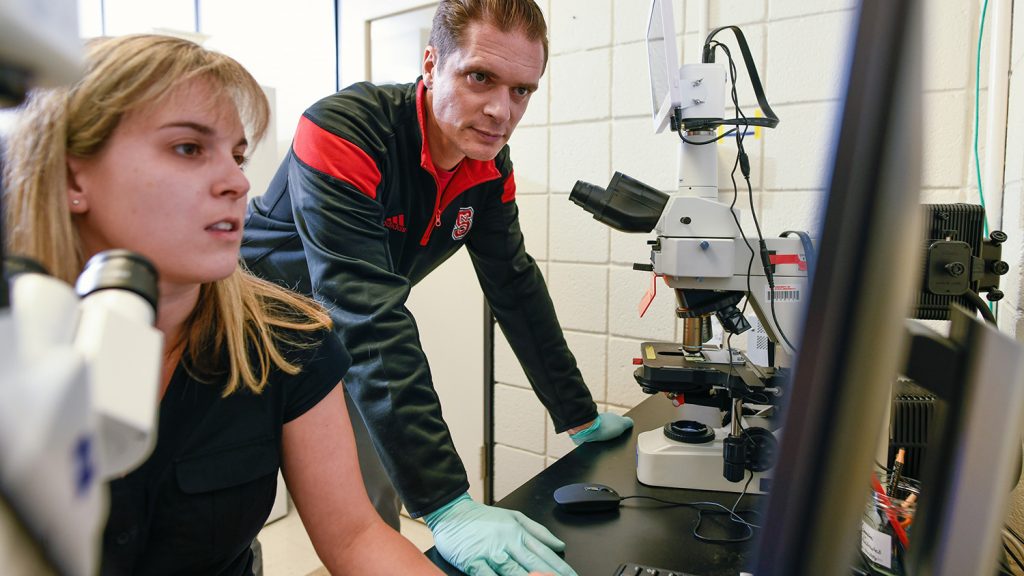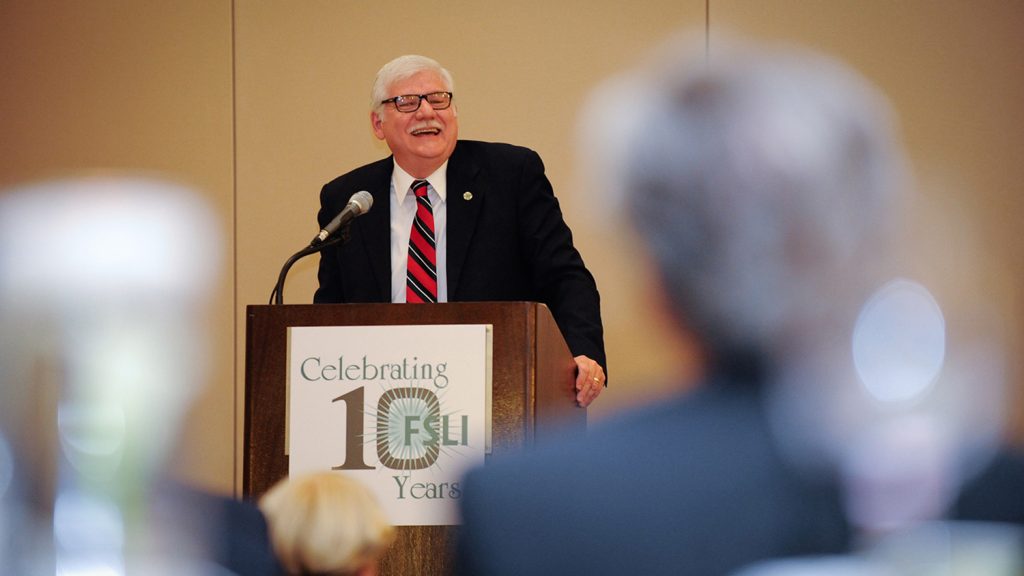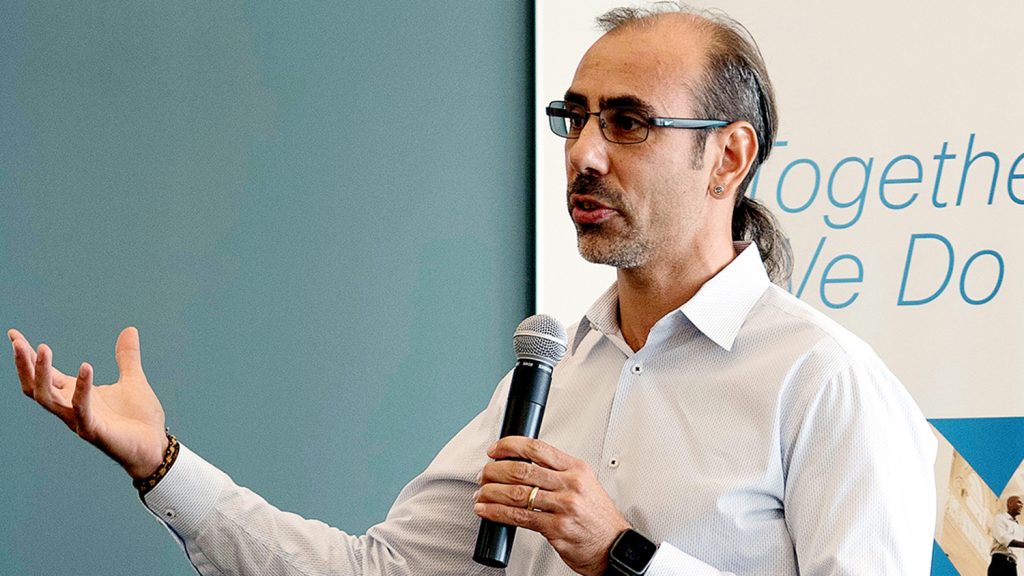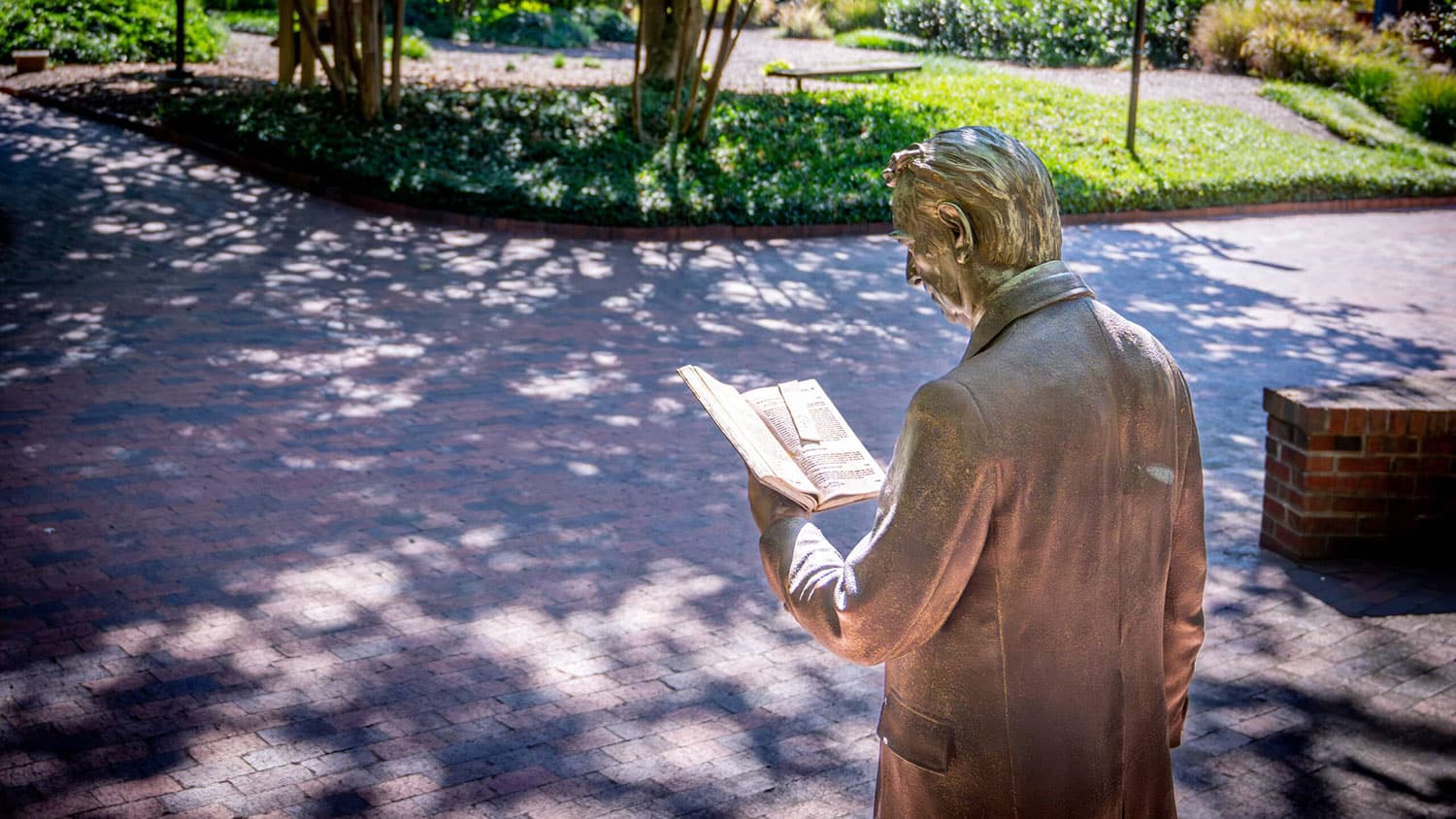3 Named Fellows of Inventors Academy
NC State innovators in the fields of food safety and computer networking are recognized by the National Academy of Inventors.

Three NC State faculty members have been named fellows of the National Academy of Inventors. They will be formally inducted at a ceremony April 10 at the Heard Museum in Phoenix, Arizona.
Rodolphe Barrangou, Todd R. Klaenhammer Distinguished Professor in Probiotics Research, is a pioneer in the discovery of the adaptive bacterial immune system known as CRISPR. His influential work is advancing research in the areas of genome editing, antibacterial and antimicrobial production, food safety, food fermentation, and plant and livestock breeding.
Barrangou, a professor in the Department of Food, Bioprocessing and Nutrition Sciences, has received numerous prestigious honors for his work on CRISPR systems. He was elected into the National Academy of Engineering, the National Academy of Sciences and received the NAS Prize in Food and Agriculture Sciences in 2018. He has also received the NAS Award in Molecular Biology in 2017, the 2016 Warren Alpert Foundation Prize and the 2016 Canada Gairdner International Prize.

Barrangou is the editor-in-chief of The CRISPR Journal, a peer-reviewed publication that brings together researchers and practitioners in a wide range of disciplines, including genetics and genomics, cell biology, immunology, infectious diseases, microbiology, molecular biology, neuroscience, plant biology, ethics and law.
He has authored or co-authored more than 150 peer-reviewed publications and is credited with more than 50 issued and pending patents.
Kenneth R. Swartzel, William Neal Reynolds Distinguished Professor Emeritus in the Department of Food, Bioprocessing and Nutrition Sciences, is widely known for blending basic engineering with chemical and biological kinetics to develop new preservation processes that yield high-quality, nutritious, safe and economical foods.
His research in continuous flow food processing systems has led to 24 U.S. and 32 foreign patents as well as eight startup companies in North Carolina. Royalties to NC State from licensed patents from his lab have exceeded $20 million.

Swartzel has won numerous awards and honors, including the Institute of Food Technologists’ Nicholas Appert Award for preeminence in and contributions to the field of food science and technology. He is a fellow of the National Academy of Engineering, IFT and the American Society for Agricultural and Biological Engineers.
Swartzel has published more than 120 scientific papers and has been principal or co-principal investigator on projects with outside support of more than $26 million. He retired from NC State in 2015 after 40 years of service.
Carlos Pignataro, an adjunct lecturer in the Department of Electrical and Computer Engineering, is a distinguished engineer at Cisco, where he serves as chief technology officer and chief architect for the Global SP Services business.

He is co-chair of the Cisco Services patent committee and a founding member of the International Society of Service Innovation Professionals.
An expert in network architecture, he has co-invented almost two hundred U.S. patents (issued and pending), co-authored over 50 Internet Requests for Comments and co-authored three books on computer networking.
He has received a variety of awards in technology, innovation and services science, including the 2019 IEEE Communications Society Industrial Innovation Award and the 2018 Cisco Pioneer Award.
The National Academy of Inventors is a member organization comprising U.S. and international universities and governmental and nonprofit research institutes, with over 4,000 inventor members and fellows spanning more than 250 institutions worldwide. It was founded in 2010.


